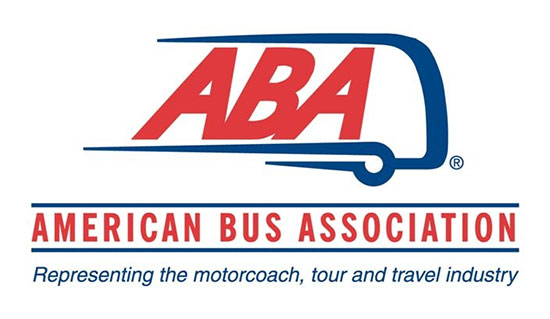The American Bus Association (ABA)—the industry leader advancing North American motorcoach travel and tourism—released motorcoach industry closure data gathered from the Department of Transportation's Federal Motor Carrier Safety Administration (FMCSA).

According to FMCSA, in a typical year such as 2018 or 2019, the motorcoach industry would expect to see an average of 100-120 passenger companies lose operating authority.
The data collected by FMCSA show a surge in losses of authority for motorcoach operators in 2020, which means these companies are no longer providing transportation, in some cases forever. There have been nearly 500 companies who have lost their operating authority, whether voluntarily or involuntarily, so far this year (482 through Nov. 30, 2020), a 400 percent increase over 2019. Nearly 72 percent of these losses of authority occurred between April and August 2020, during the height of the pandemic. According to FMCSA records, only 26 (5 percent) of the closures in 2020 appear planned in advance, with an “Out of Business” form filed with FMCSA. It is unknown how many other companies remain open in “name” only or on the brink of formal closure.
 ABA President Peter Pantuso
ABA President Peter Pantuso
"2020 has been an extraordinary year in terms of companies no longer operating buses," said ABA president and CEO Peter Pantuso. "Between April and August 2020, we saw the equivalent of nearly three years of closures in just four months. I do not know of any other transportation industry impacted as severely by this pandemic as the motorcoach industry. Our industry is unique, and we need a bridge to a time of recovery, which is at least 12 to 24 months away."
This follows the recent testimony on Capitol Hill by Pantuso to help capture some much-needed aid for the industry. On Tuesday, December 15, Pantuso testified to the Senate Committee on Commerce, Science & Transportation Subcommittee on Manufacturing Trade and Consumer Protection on the impact of COVID-19 on the live event entertainment industry, including transportation suppliers.

In prepared remarks, Pantuso outlined the devastation COVID-19 has brought on the motorcoach industry, which has also affected many other industries including the live entertainment industry. A portion of ABA's motorcoach membership, Entertainer Motorcoaches, is focused on transporting artists, entertainers, and celebrities and their crews and equipment on ground-based tours and to various entertainment venues. As well, politicians and the media also rely on these motorcoaches for scheduled events. Motorcoaches play a critical role in advancing the event as well as post-event activities, facilitating not only transportation of artists and crews, politicians, and the like, but also audiences to live events, including sports events.
"All motorcoach companies are a vital component of the national transportation network, providing intercity scheduled bus service, commuter and shuttle operations, school bus transportation, charter and entertainment services," said Pantuso. "Prior to March 2020, the motorcoach, tour, and travel industry was fully engaged in driving the economy, and the charter sector was preparing for another strong tourist and entertainment season. However, the outbreak and spread of COVID-19, has brought the industry to a standstill. To date, our industry has been entirely overlooked, in terms of its critical role in the nation’s transportation network and economic engine. Our industry is unique, and we need a bridge to a time of recovery, which is at least 12- to 24 months away."
The ripples can be felt through the economy as motorcoach companies directly employ close to 100,000 workers and generate $15 billion in economic activity, in addition to supporting nearly 2 million other jobs across America and creating $237 billion in direct and indirect economic activity nationwide.
Today, the industry is operating at less than 10 percent of 2019 levels, with no clear path to recovery for another 12 months or more. Lacking any direct financial support, as other passenger transportation modes received in previous stimulus packages, the industry and specifically the entertainer motorcoach sector, is now facing a dire situation meaning employees would be out of work permanently.
It is important to note that the motorcoach industry is a capital-intensive industry, where the largest cost are the costs of equipment and insurance with payments at the mercy of deferments by lenders and vendors. With the reduced demand for transportation services because of the pandemic these numbers could significantly increase in the future.
Visit buses.org for more information.
[12.30.20]

